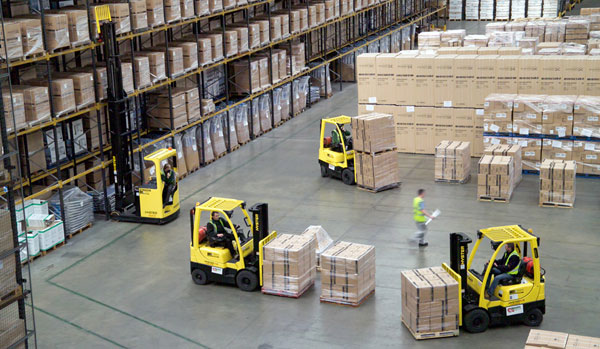
The flexibility offered by seasonal workers makes them a great option to keep up with holiday demands. Though the temptation might be to keep outgoings on these new starters to an absolute minimum, Andy Cartwright, Technical Manager for leading fork lift truck training provider, Mentor Training, explains how, by providing the right training, you can see practical and financial benefits that are vital at your business’ busiest time of year.
The facts
Research suggests that an influx of new staff means a significant increase to the risk of injury on site. During the first month of employment, any worker – permanent or temporary – is four times more likely to be involved in an accident and, with each percentage-point increase in new staff, a company’s risk of major workplace injuries can increase up to 2.5 per cent.
But Mentor maintain that with the right training, agency workers can safely and quickly integrate into the workforce, achieving (and even exceeding) the positive impact they were hired to have.
As Andy explains, "Without the proper training, a short term solution to the Christmas rush can come at a very high cost. To make sure you get the most out of your new employees, you'll need to make sure they've got the relevant skills and knowledge to become a safe and effective part of the team."
Stay safe (and legal)
With a section devoted specifically to contractors and agency workers, the HSE’s definitive forklift operations safety guidance – L117 Approved Code of Practice for Rider-Operated Lift Trucks – highlights the need for special risk management of this group, including proper training and additional supervision.
Andy reminds employers: “You are no less responsible for the health and safety of an agency worker on their first day, than you are for someone who has worked tirelessly for you for decades. And this includes providing all three elements of training listed in L117. Basic training alone may not be enough to keep your new employees safe and productive.”
By law, as set out in the Approved Code of Practice, basic operator training should be supplemented by:
• Job specific training – a knowledge and understanding of the operating principles and controls of the lift truck to be used for the job, in the way it will be used in their workplace
• Familiarisation - applying what has been learnt, under normal working conditions, on the job
Mentor point to a recent online test - produced in association with the Fork Lift Truck Association for their National Safety Month - as evidence that these types of training provision might be being neglected. From the hundreds of managers who took part, whose jobs required them to work on or around forklift trucks, only 1 in 3 were able to correctly identify the three categories of training.
Businesses are urged to take heed, “Don’t underestimate the importance of familiarisation and job-specific training for new starters; there’s a reason the L117 describes them as “essential”. They’ll further reduce the risk of accidents by ensuring employees have a full understanding of what is required of them and how to go about it safely. What’s more, they’ll help breed efficiency from the outset, limiting delays whilst your seasonal workers get to grips with their truck, job role and working environment and boosting productivity at the time you need it most.”
Save time and money
Encouraging companies to enjoy real-world benefits that far exceed complying with the law, Mentor highlight the many practical and financial gains on offer to those who invest in their workforce.
“Training your new starters can avoid unexpected and costly disruptions during your busiest periods. The money saved on just one dropped pallet, for example, might run into hundreds of pounds - depending on the contents, never mind the added costs of aisle closures, clean up and repacking. Accidents resulting in truck or racking damage would undoubtedly be even more expensive and may cause longer delays whilst repairs are made.
“With a safe and fully operational workforce, staff cover and compensation claims can be avoided and deadlines can be met, meaning happy customers and savings on overtime pay. And don’t underestimate the effect that feeling like a valued part of a thriving company has on staff morale and retention rates.”
A holistic approach
Mentor is keen to stress that training should not be limited solely to operators. Statistics from the HSE show that two in three victims of accidents involving workplace transport are pedestrians, and Mentor are encouraging businesses to raise awareness amongst all staff - not just operators - of the dangers facing them in their everyday working environments.
Andy summarises, “It’s been proven that trained staff make for a safe, efficient workforce, and this is crucial at a time when you’re performing under pressure. By providing the proper training you can reduce risk and contribute towards a safe and stress-free Christmas for everyone involved.”